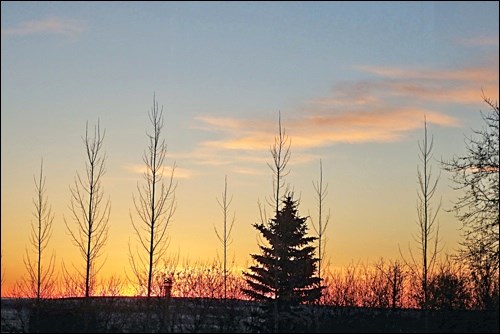When I was a weird young child, I was infected by a strange belief. I believed I would never grow older, bigger and wiser unless I first learned to whistle. I stood for hours in front of a mirror, gulping down and expelling air while I contorted my lips into patterns that I thought would make a tuneful sound come out. After weeks of trying, one did – and then another and another. I could whistle. In the years that followed I became a skilful whistler with a huge repertoire of tunes. And then the gadget came along.
The gadget was a mall tape recorder. I could tell when a younger person owned one because there was always a wire sticking in one of his ears. I was disapproving, even incensed. These thoughtless young idiots were listening to music made by others, they were not making their own. They were not learning how to whistle. I never bought one of these portable noise makers at the time and don’t own one now, but I did stop whistling, because it seemed everybody else had stopped doing it.
Thereafter, in England, there were two incidents which that persuaded me to begin whistling again. My wife and I were in the old, glassed-in railway station in Darlington. (My mother was born in Stockton and the first passenger-carrying, steam-powered railway in the world was the Stockton and Darlington.) While waiting for a train, I looked up to see a glazier working on the glass roof. Then I heard a virtuoso performance of whistling. Perfect in every note and intonation, the workman was performing The Whistler and His Dog. It was a difficult tune that I had once mastered.
The train took us to Goathland in Yorkshire, my father’s ancestral village. (In more recent years it became fictional Aidensfield, the setting for the BBC’s long-running TV serial Heartbeat.) On our second day in Goathland, I hiked to a huddle of buildings that was all that remained of the former coal-mining town of Beckhole. The scars left by the mine were hidden under a blanket of greenery. The air was fresh. I sat down to rest on a bench beside the only public house. Then came another incredible burst of sweet sound. The happy publican inside was whistling The Carnival of Venice. This was another difficult tune I had mastered long ago. I lingered on the bench as the man stopped whistling and began to sing. In a tenor voice as rich as my father’s (who had long since departed to sing with a heavenly choir) he sang some of the same songs with which my father had greeted beautiful summer mornings. I should have gone inside and talked to the man, but I didn’t. The only memory of Beckhole that I wanted to take back to Canada was of the happy music the invisible man had made.
I believe whistling is a gift – a simple, honest, beautiful gift. Despite the benefits the wild race of electronic miracles has brought to us, I am still unhappy at seeing the art of whistling submerged in the murky waters of technology. Next summer, if I am still active and can relearn my former skills, I will whistle madly wherever I go. People will think I am a very happy man, but I will know I am protesting because of the precious gifts we have lost in our journey from simpler times.




